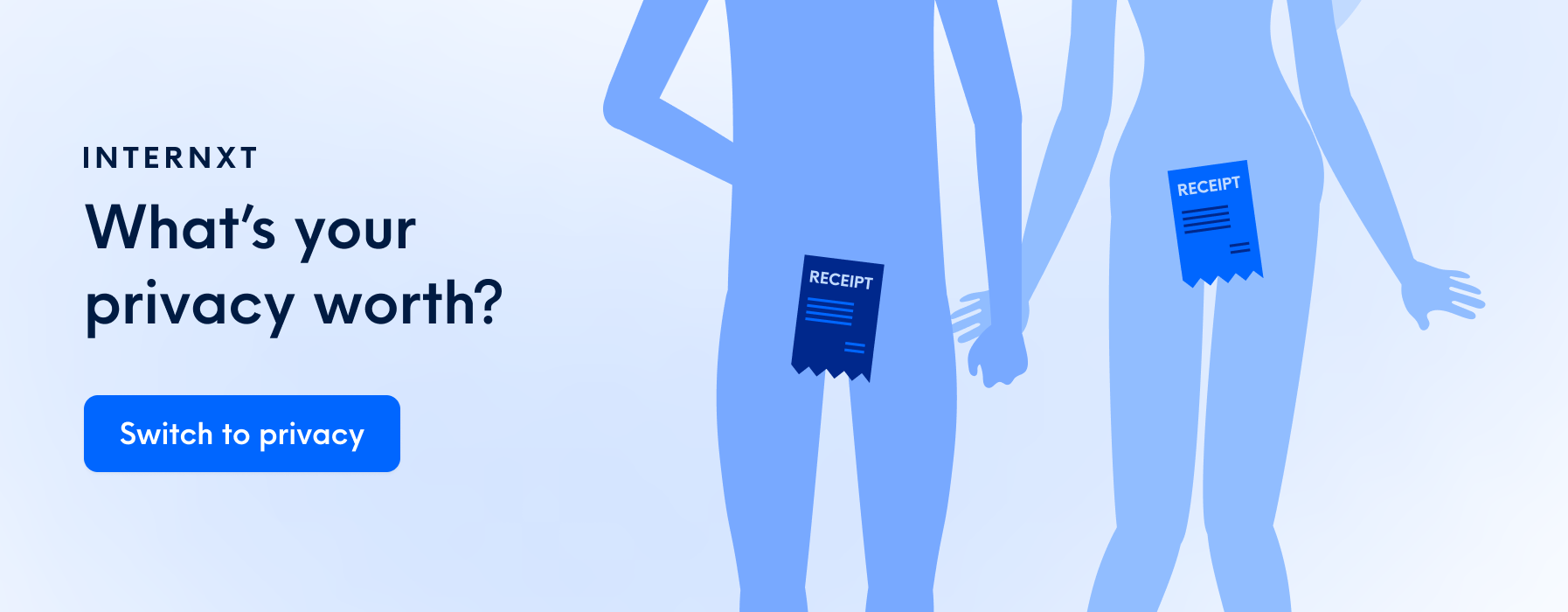Is Online Privacy Dead? Why Companies Infringe on Your Digital Rights

Yes. Privacy is (mostly) dead.
Not to be all doom and gloom, but the state of online privacy is far from ideal. Many of us can agree that some semblance of privacy is indeed an excellent thing. We all wish for more privacy and more control over where our data ends up, what it's being used for, and who profits from it.
While the fight for digital rights still rages, the right to privacy has been completely obliterated over the past decade or so. Privacy is so scarce online that many experts would go as far as to say that there is no such thing as privacy in the modern day and age.
With something as complex as the internet, it's tough to wrap our heads around exactly what is happening. Many of us go online, find what we're looking for, post something or buy something, and call it a day.
So what's wrong with that, right? What could a company possibly learn from a few clicks? You didn't type anything that wasn't public knowledge, so where is all this privacy invasion stuff?
Businesses have a way of making your data talk. Below are just a few ways (that we know about) companies infringe on your privacy and use data to find out more about you:
Your Rights Don't Go Away When You're Online
Let's be clear. Your rights do not magically disappear as soon as you go online. Though your data and personal information don't have a tangible form, that doesn't make it less yours.
If you wrote down your information on a piece of paper and left it on your kitchen table, and someone broke into your house, took it, and sold it for a profit—would that bother you? Would that seem like a blatant violation of your privacy? Is it theft? Yes. So why do we as a society allow these practices to take place online with little to no regulation?
The Upside of Zero Privacy?
Customization and convenience. Admittedly, searching for something and being instantly offered related results or queries is incredible.
Websites that remember your information are much easier to navigate as they guide you to where you likely would like to visit. Many of us have taken for granted just how much of our web experience is aided and curated by cookies and user information gathered over long periods of time.
How Companies Invade Your Privacy
As companies grow and become more efficient, they capitalize and double down on actions that have created profits or that show promise. The constant tightening of these screws has led the internet to its current state. First, birthdates were valuable, then browsing history, then the content of users' email and cloud storage, then their real-word locations, and so on.
Hoarding and selling data
Before we get into how corporations directly attack your privacy, we must explain what they do with the data you freely give them. Almost every website, application, browser, etc., tracks some kind of information. The sheer amount of information Google tracks is astounding!
A consumer profile can be built by a savvy company using nothing more than your computer or mobile device's IP address and a record of web pages you visited. Add in links you clicked, purchase history, public posts, and time spent viewing content, and suddenly this profile becomes scary accurate. These profiles are sold to the highest bidder, and advertisers will buy profiles that fit their demographic.
Sure, your name may not be listed anywhere on the data in question, but companies now know your web habits and how best to sell to you.
Manipulating public opinion and pushing misinformation
This is not just a personal issue, all of this user data is dumped into huge reservoirs called data lakes, and AI is used to sift through all this information to find larger patterns and trends. Companies then try to capitalize on this information in any way they can.
By understanding the direction the public is heading, companies can market against or for these trends in whatever stands to benefit their business more. Political ads and what kind of information gets presented to users can motivate people to rally around causes that may actually have a minimal real effect on their lives.
The information you are given frames the discourse. If a company wants something to be a big deal (or not a big deal), it can dictate how much and what kind of info reaches end users via ads, recommendations, and social media. Ultimately, this kind of digital social engineering could (if it hasn't already) push elections to favor Big Tech's preferred outcome.
Location tracking, surveillance, and the IoT
Now that everything is connected to the internet and the "Internet of Things" looks like it is here to stay, it's not just your digital life being tracked and monitored.
Rule of thumb, anything with built-in GPS or "location services" can track your physical location. Connecting to wifi can also reveal your physical location to any parties that may be interested.
Now, this info isn't often linked to your person per se. Though cops and government agencies can obtain your location data with a warrant, it can also be used on a larger scale to analyze a particular population or demographic's movements.
All of that sleep data you collect to get a good night's rest, average heart rate and total steps are taken, what songs you play, what time you unlock your door, when packages arrive, what is the layout of your house and what is the most efficient path for your vacuuming robot to take?
All of this information and data gathered from devices you may or may not be aware of has the potential to collect almost everything about a person. It's scary stuff.
Lobbying against regulations and limiting competition
Google, Facebook, Apple, Amazon, and pretty much anyone else you would like to lump in under the umbrella-term Big Tech spends boatloads of money influencing legislation. Lobbying is legal (though it shouldn't be).
Still, these companies are using their enormous influence to weaken or outright kill popular legislation protecting users' data, enshrine net neutrality, and destroy digital monopolies.
Government intervention may be our only chance of getting some privacy back. Even then, it's unlikely tech companies won't find another way into our personal lives.

What Can You Do To Protect Your Privacy?
Short of getting offline forever, not a whole lot. Online privacy is a massive and complex issue that can't be solved with one magic bullet.
You can, however, educate yourself more about how to protect yourself better while browsing the web. It's also smart to support and invest in services that respect your right to privacy and take your digital rights to heart. Internxt is one such company that offers open-source cloud services that are private and secure.
Lastly, getting involved politically is realistically the most impactful thing you can do to preserve the right to privacy online. There are a ton of NGOs, nonprofits, and digital rights organizations working to pass legislation that protects privacy, encourages competition and holds shady businesses accountable. Find an organization that inspires you and shares your values, join up, and get involved.

